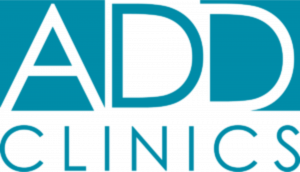
ADD and the Importance of a Comprehensive Treatment Plan
Understanding ADD
ADD is a neurological condition characterized by persistent patterns of inattention, impulsivity, and, in some cases, hyperactivity. These symptoms can interfere with academic performance, work responsibilities, and social interactions. While ADD is often associated with children, it also affects adults, who may experience difficulties in managing tasks, maintaining relationships, and achieving personal and professional goals.
The complexity of ADD necessitates a treatment plan that goes beyond medication alone. A successful approach considers various factors, including behavioral therapy, lifestyle changes, and educational support. Comprehensive care can help individuals manage their symptoms effectively and improve their overall quality of life.
The Role of Medication in ADD Treatment
Medication is often a cornerstone of ADD treatment, particularly for those who struggle with severe symptoms that disrupt daily functioning. Stimulant medications, such as methylphenidate and amphetamines, are commonly prescribed to help improve focus and attention. These medications work by increasing the levels of certain neurotransmitters in the brain, aiding in better concentration and impulse control.
However, medication is not a one-size-fits-all solution. The effectiveness of medication can vary from person to person, and finding the right dosage and type of medication may require some trial and error. Regular monitoring by a healthcare professional is essential to ensure that the medication is providing the desired effects without causing significant side effects.
Dr. Owen notes that medication can be an effective tool for managing ADD symptoms but should be part of a broader treatment plan. "Medication can help reduce the core symptoms of ADD, but it is important to remember that it is just one component of treatment. A comprehensive approach that includes behavioral therapy, lifestyle modifications, and support systems is crucial for long-term success."
Behavioral Therapy and Lifestyle Changes
Behavioral therapy is another key element in the treatment of ADD. This type of therapy focuses on teaching individuals strategies to manage their symptoms, improve organizational skills, and develop coping mechanisms. Cognitive-behavioral therapy (CBT) is particularly effective for helping individuals with ADD recognize and change negative thought patterns and behaviors that contribute to their difficulties.
Lifestyle changes also play a significant role in managing ADD. Regular exercise, a balanced diet, and sufficient sleep can all have a positive impact on attention and impulse control. Additionally, establishing routines and using organizational tools, such as calendars and reminders, can help individuals with ADD stay on track and manage their responsibilities more effectively.
Support from family members, teachers, and employers is also essential. Providing a structured and understanding environment can help individuals with ADD navigate their challenges and reduce stress. In some cases, family therapy or parent training may be beneficial to ensure that everyone involved understands the condition and how to support the individual effectively.
Educational Support and Accommodations
For children and adults with ADD, educational and workplace accommodations can make a significant difference in their ability to succeed. Schools and workplaces can provide specific accommodations, such as extra time on tests, quiet workspaces, or flexible deadlines, to help individuals manage their symptoms.
Individualized Education Programs (IEPs) and 504 Plans are commonly used in schools to ensure that students with ADD receive the support they need to thrive academically. These plans may include modifications to the curriculum, the provision of assistive technology, or the implementation of behavioral strategies to help students stay focused and engaged.
For adults, accommodations in the workplace may involve adjustments to the work environment or schedule. Employers can play a crucial role in supporting employees with ADD by offering flexibility and understanding of their unique challenges.
The Importance of Regular Follow-Up and Adjustments
A comprehensive treatment plan for ADD is not static. Regular follow-up appointments with healthcare providers are necessary to assess the effectiveness of the treatment plan and make adjustments as needed. As individuals with ADD grow and their circumstances change, their treatment plan may need to evolve as well.
This ongoing evaluation is essential to ensure that the treatment remains effective and that any new challenges are addressed promptly. Regular communication between healthcare providers, patients, and support systems is key to maintaining progress and preventing setbacks.
Conclusion
ADD is a complex condition that requires a multifaceted approach to treatment. Medication, behavioral therapy, lifestyle changes, and educational or workplace accommodations all play a role in managing symptoms and improving quality of life. A comprehensive treatment plan that considers the unique needs of each individual is essential for long-term success.
For more information about ADD treatment options or to schedule a consultation, please contact ADD Clinics in Gulfport, Mississippi.
Morgan Thomas
Rhino Digital, LLC
+1 504-875-5036
email us here
Visit us on social media:
Facebook
Distribution channels: Culture, Society & Lifestyle, Healthcare & Pharmaceuticals Industry
Legal Disclaimer:
EIN Presswire provides this news content "as is" without warranty of any kind. We do not accept any responsibility or liability for the accuracy, content, images, videos, licenses, completeness, legality, or reliability of the information contained in this article. If you have any complaints or copyright issues related to this article, kindly contact the author above.
Submit your press release

